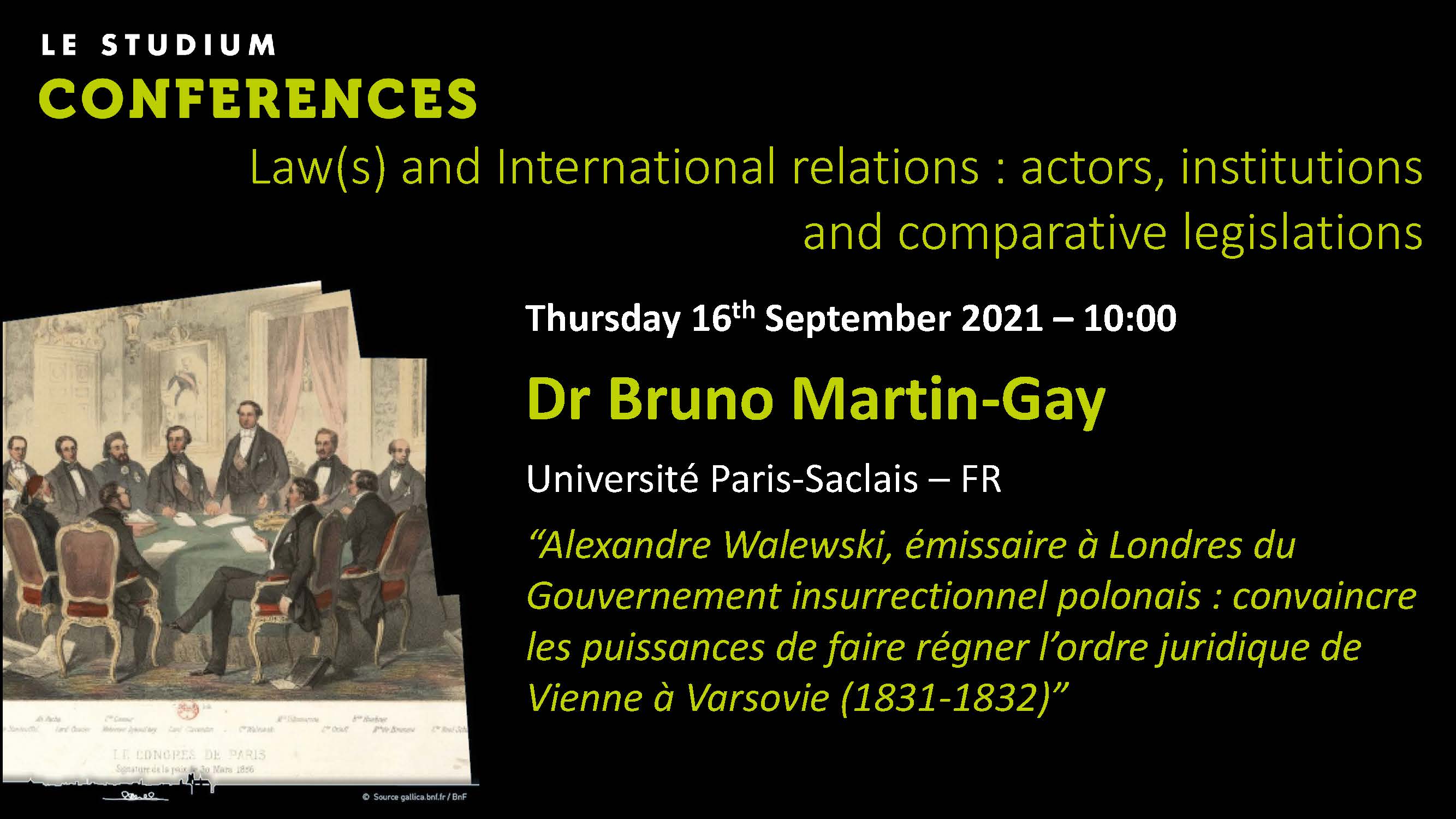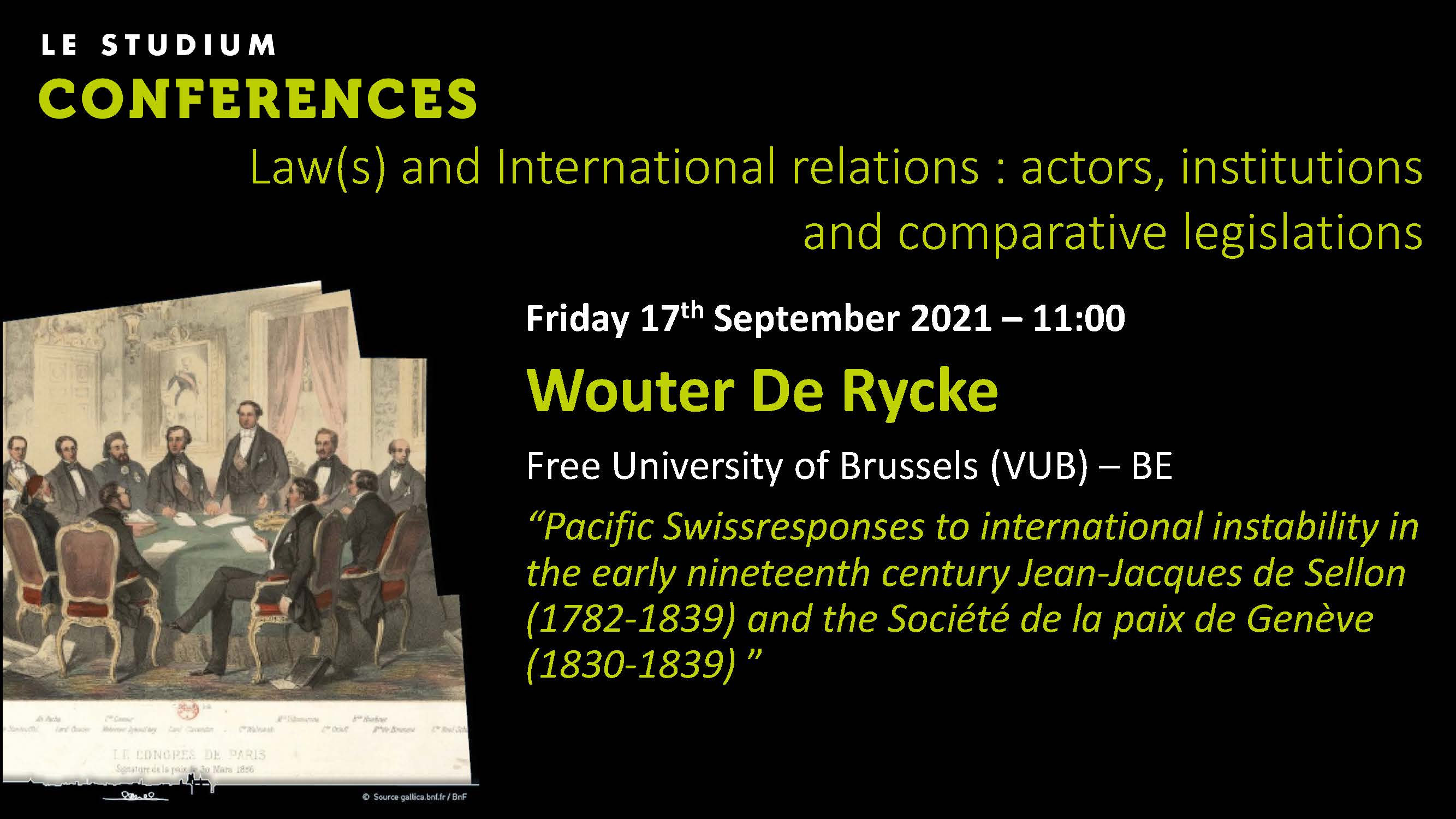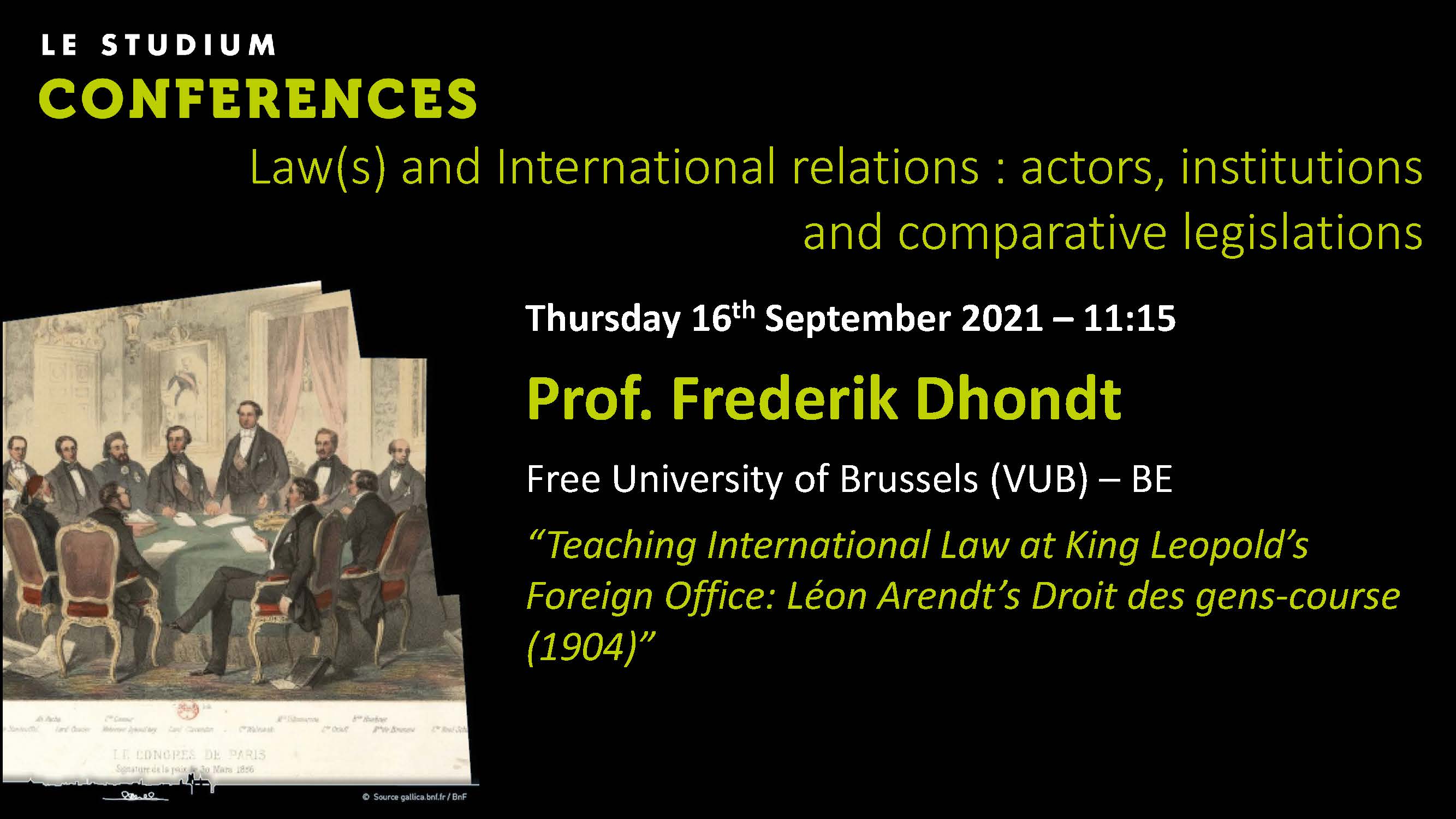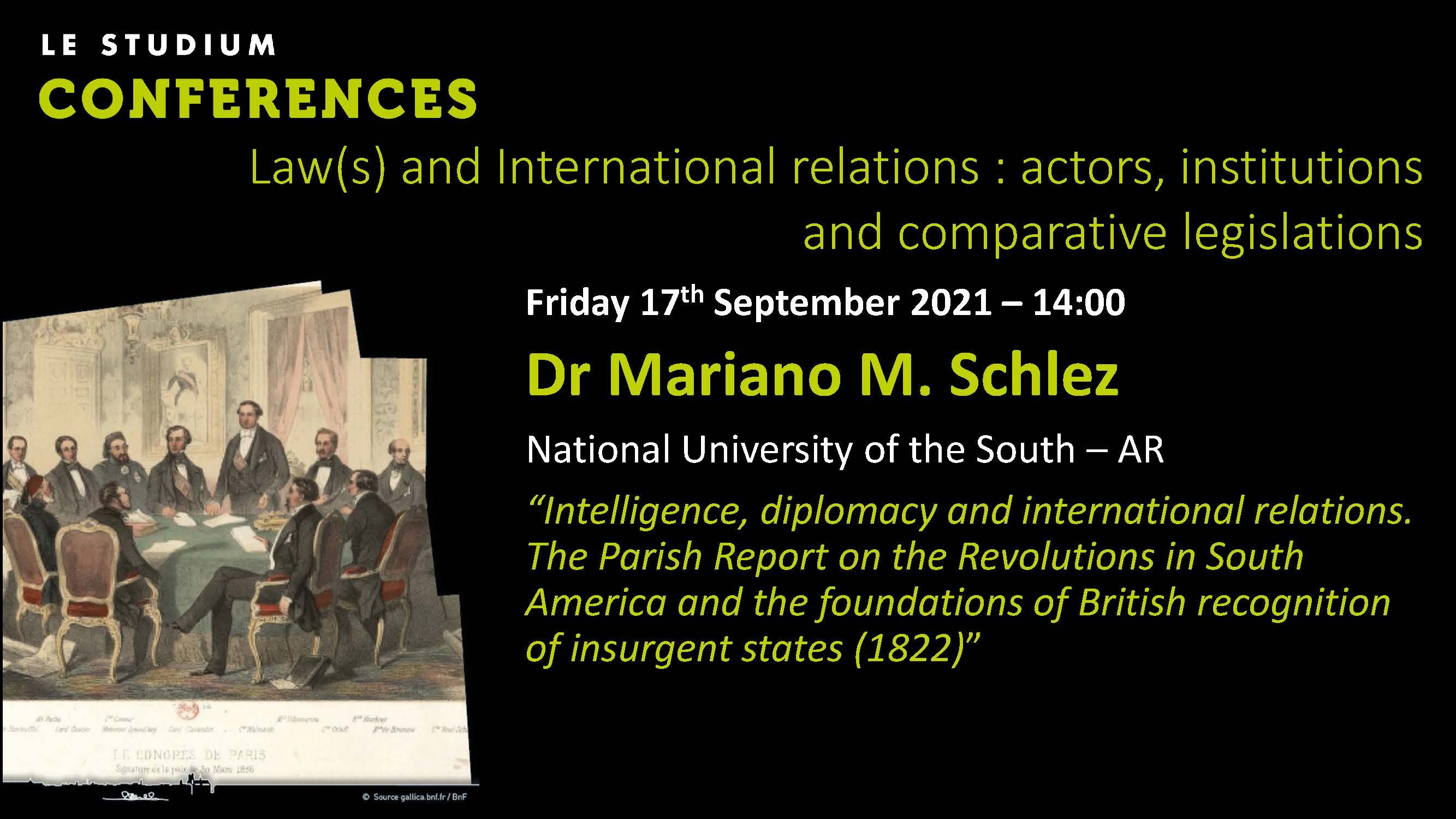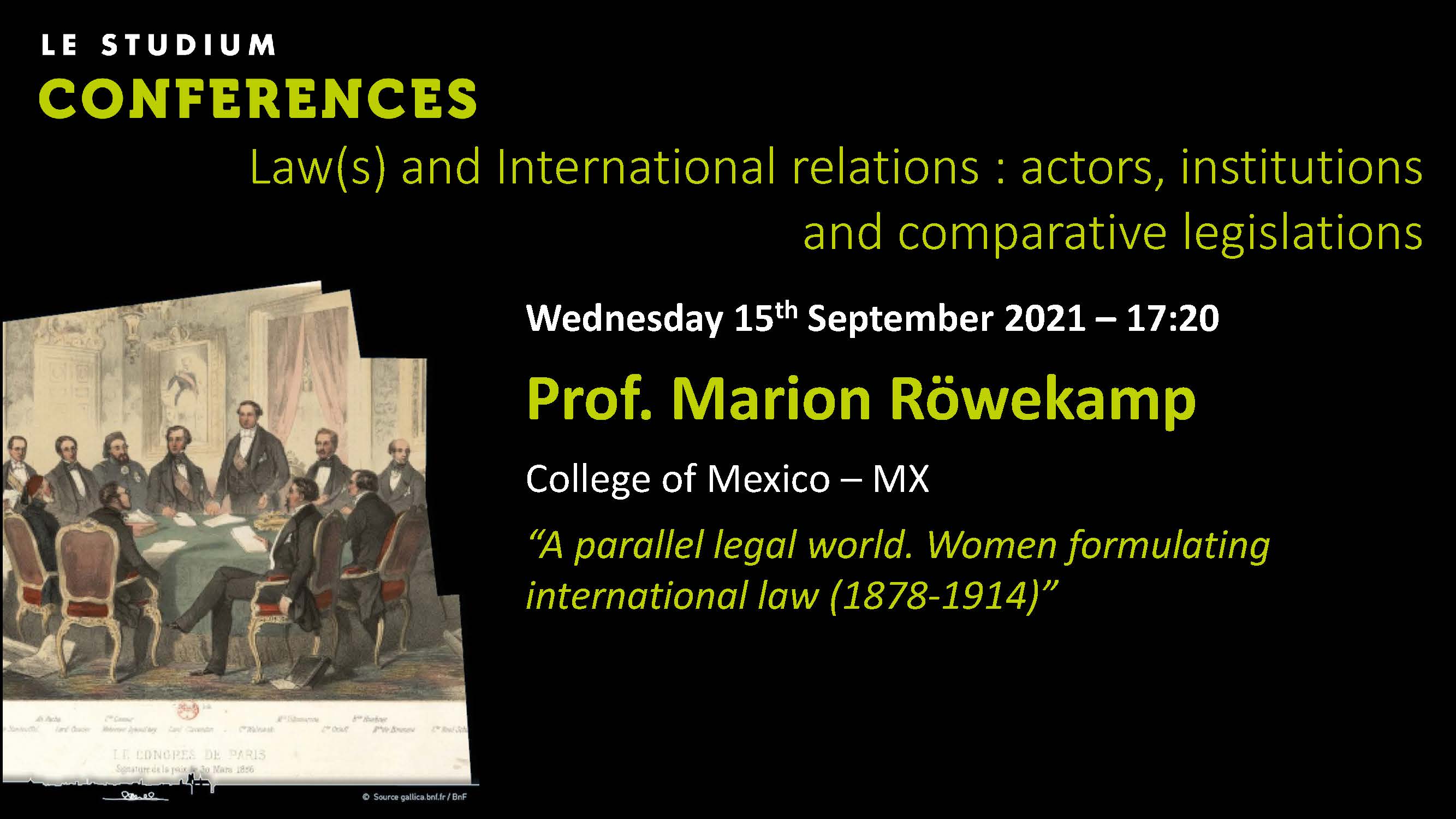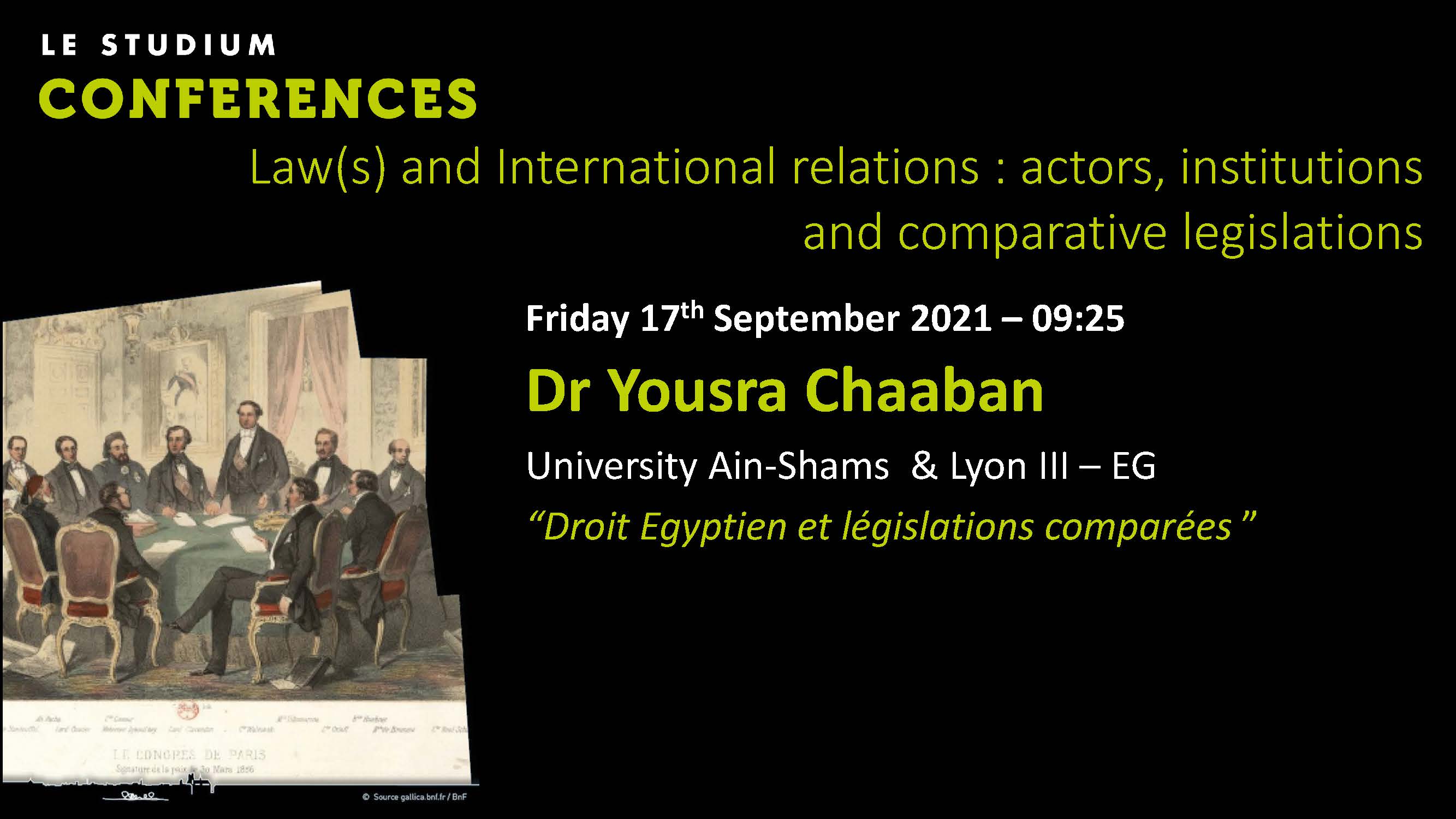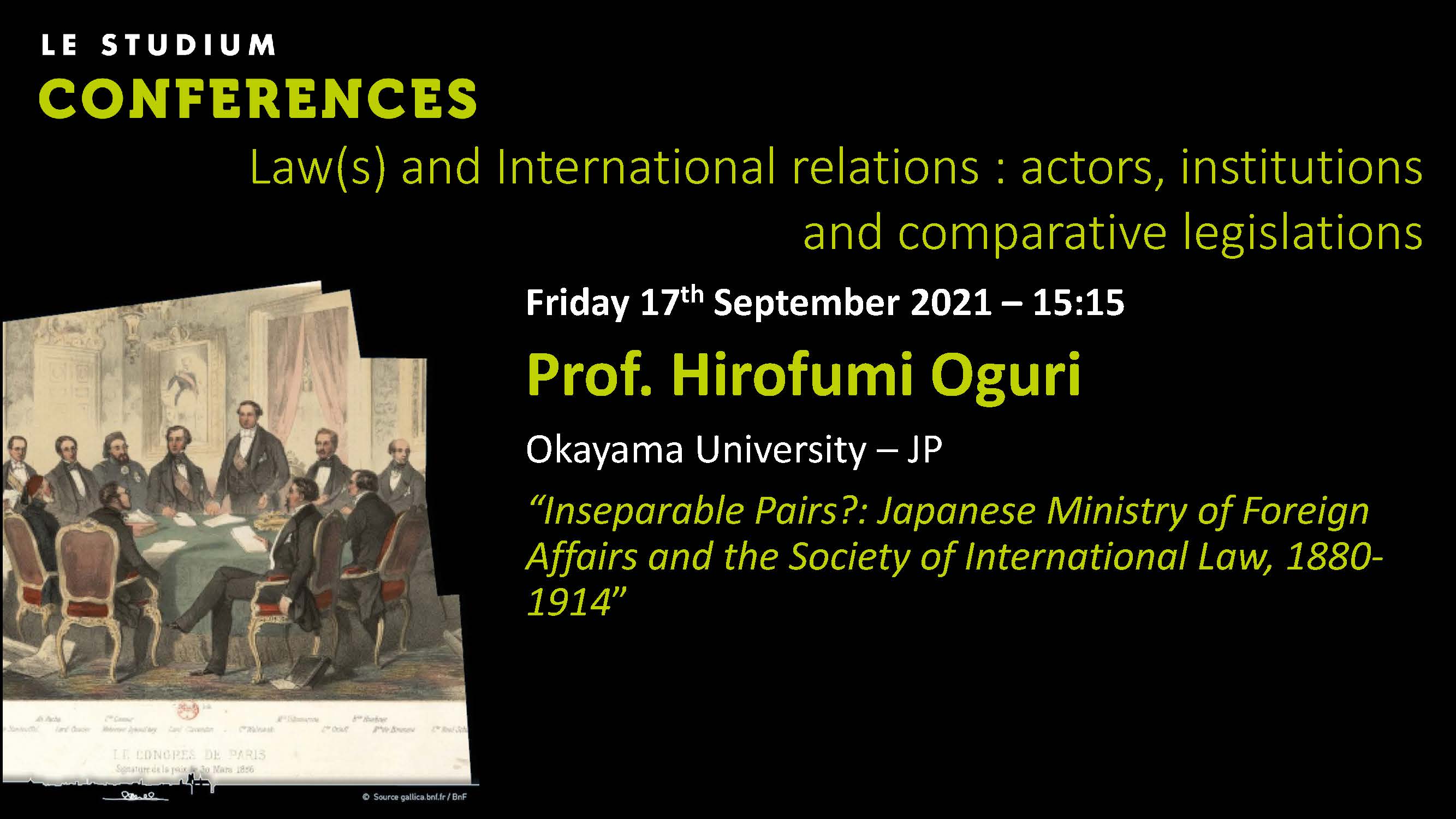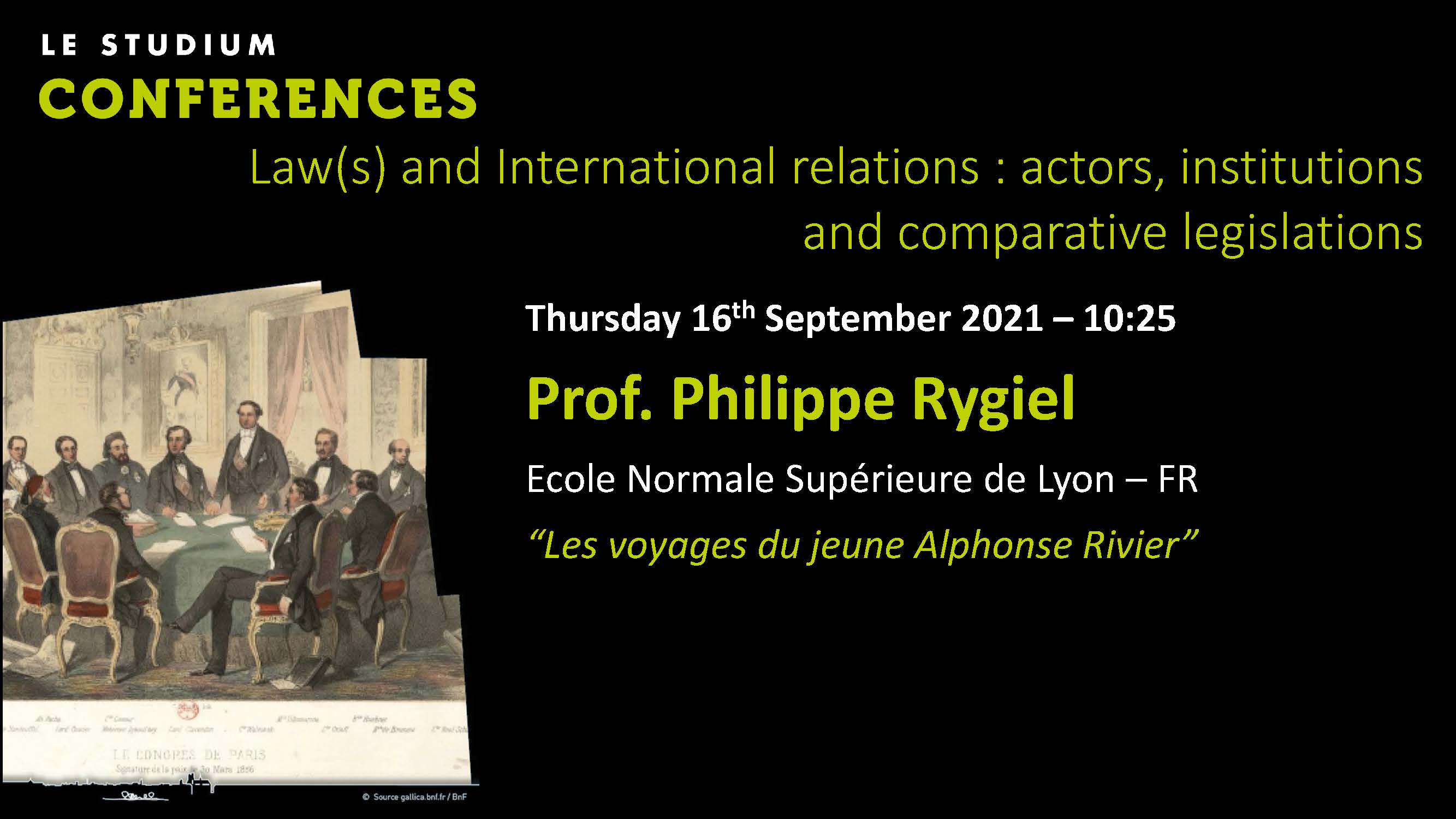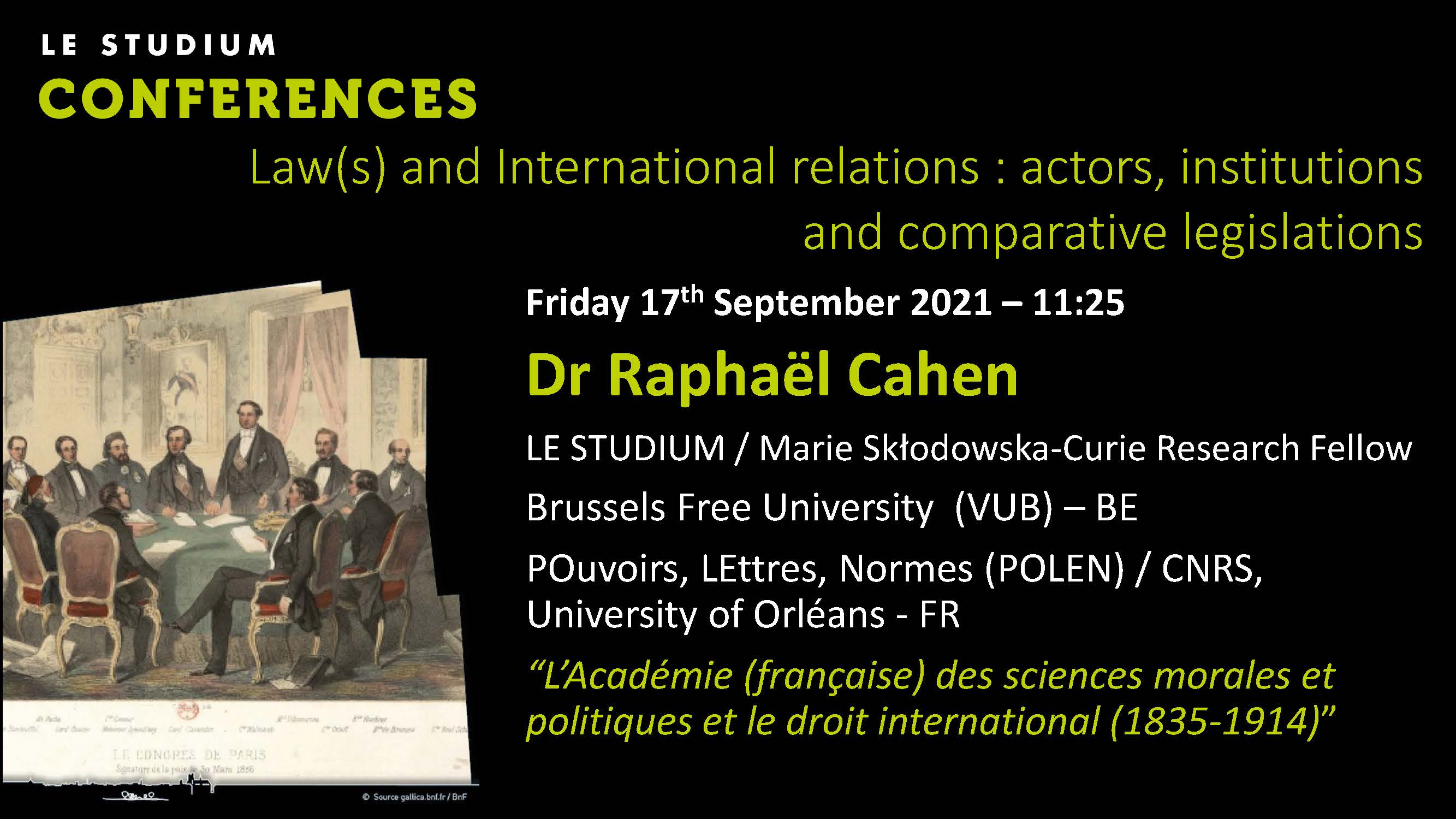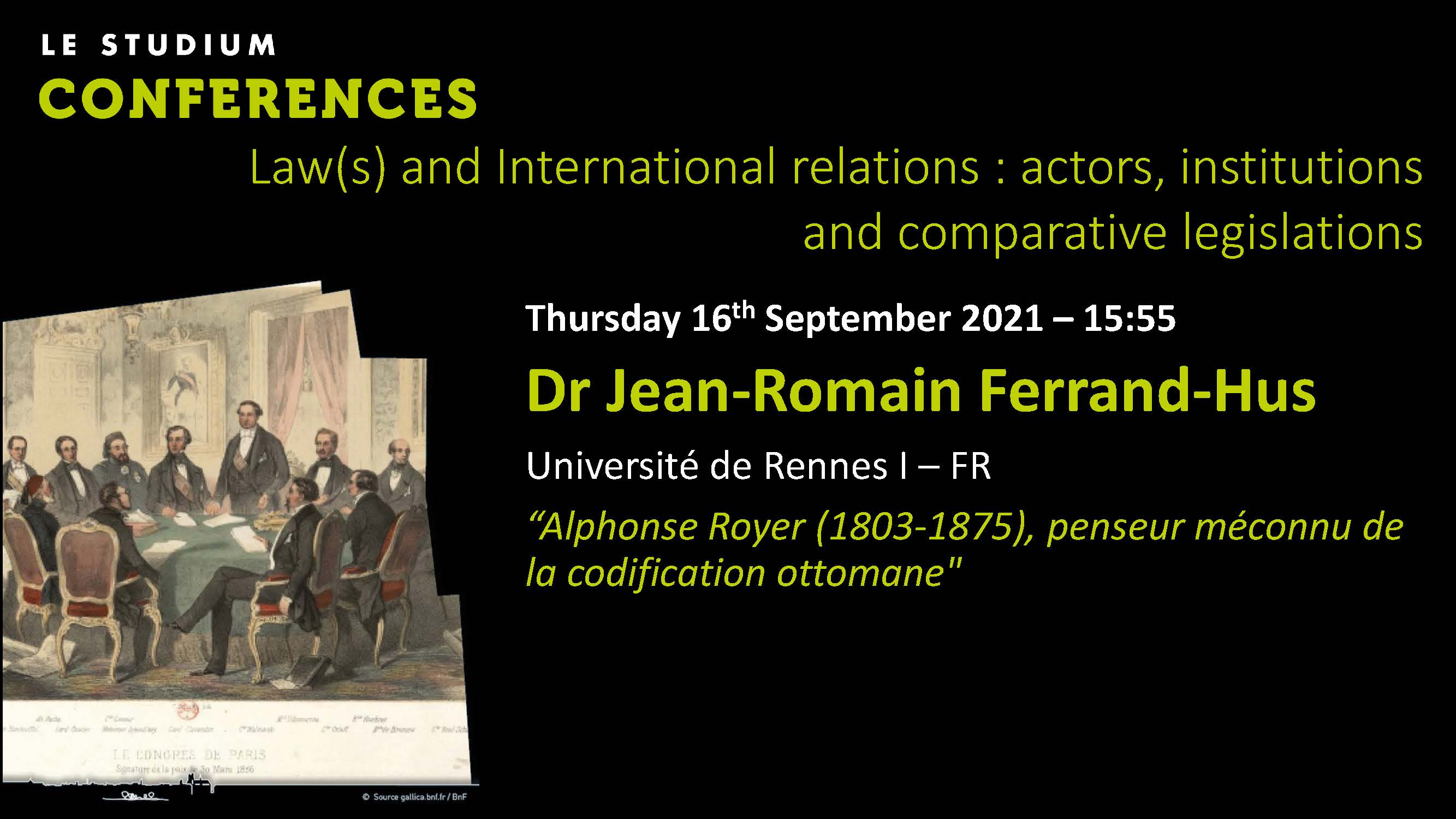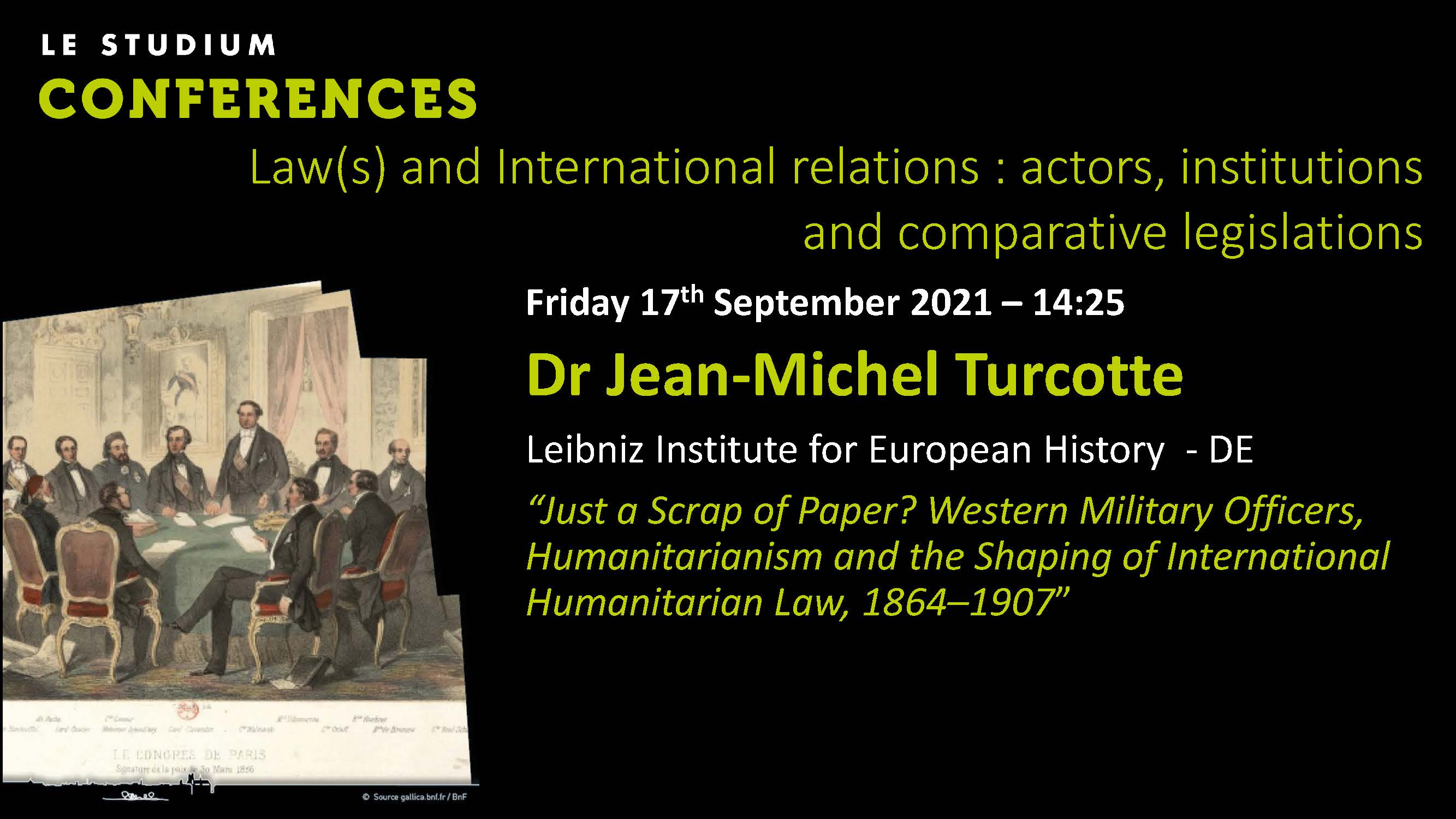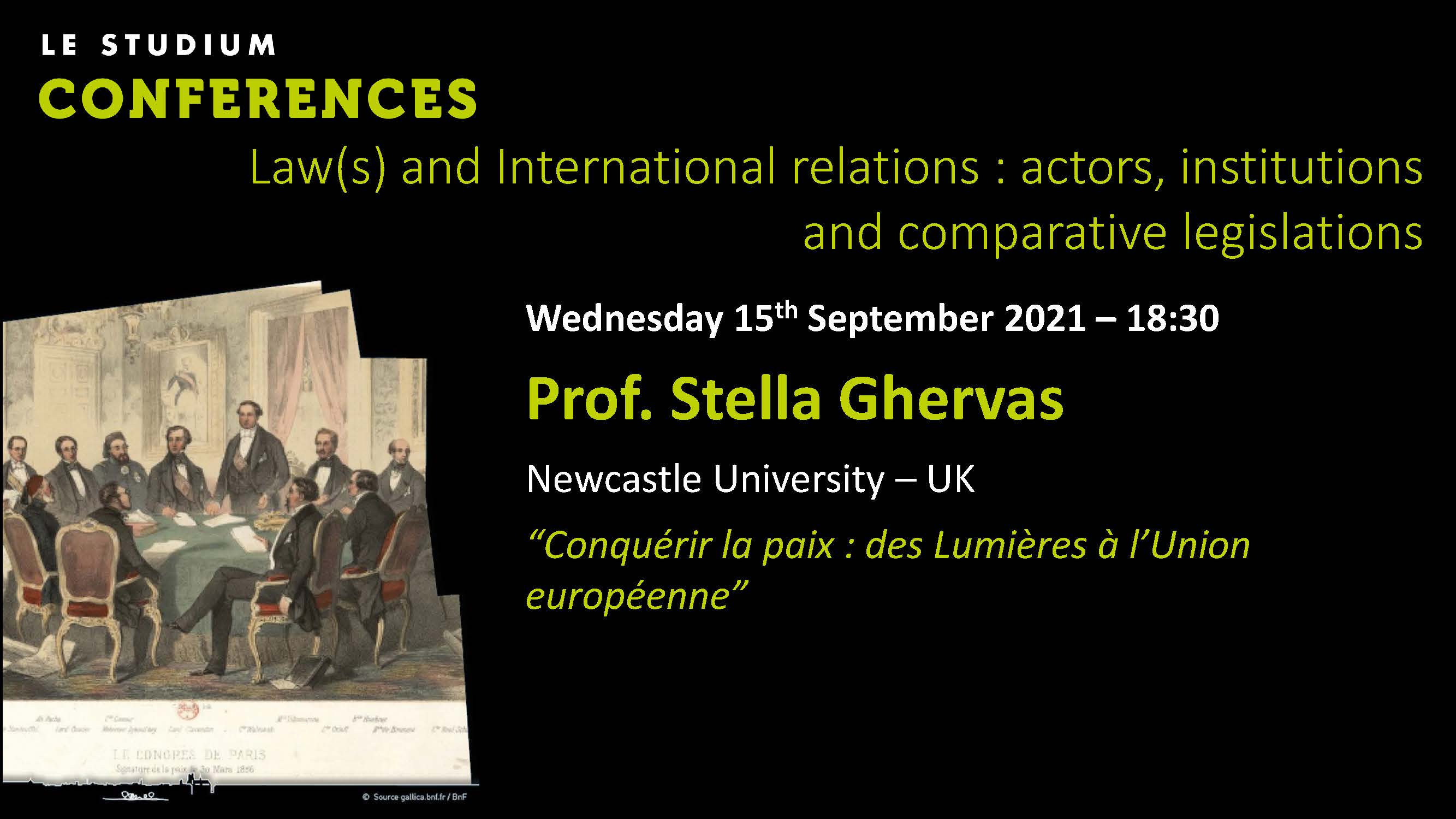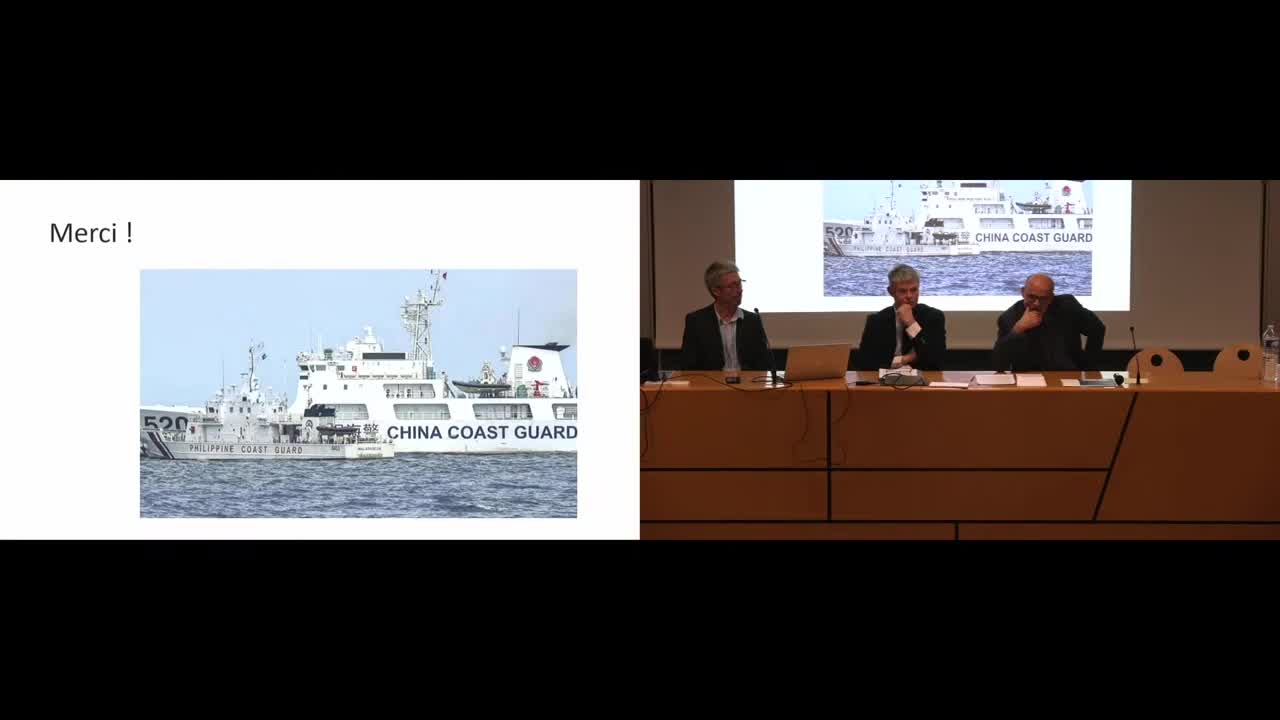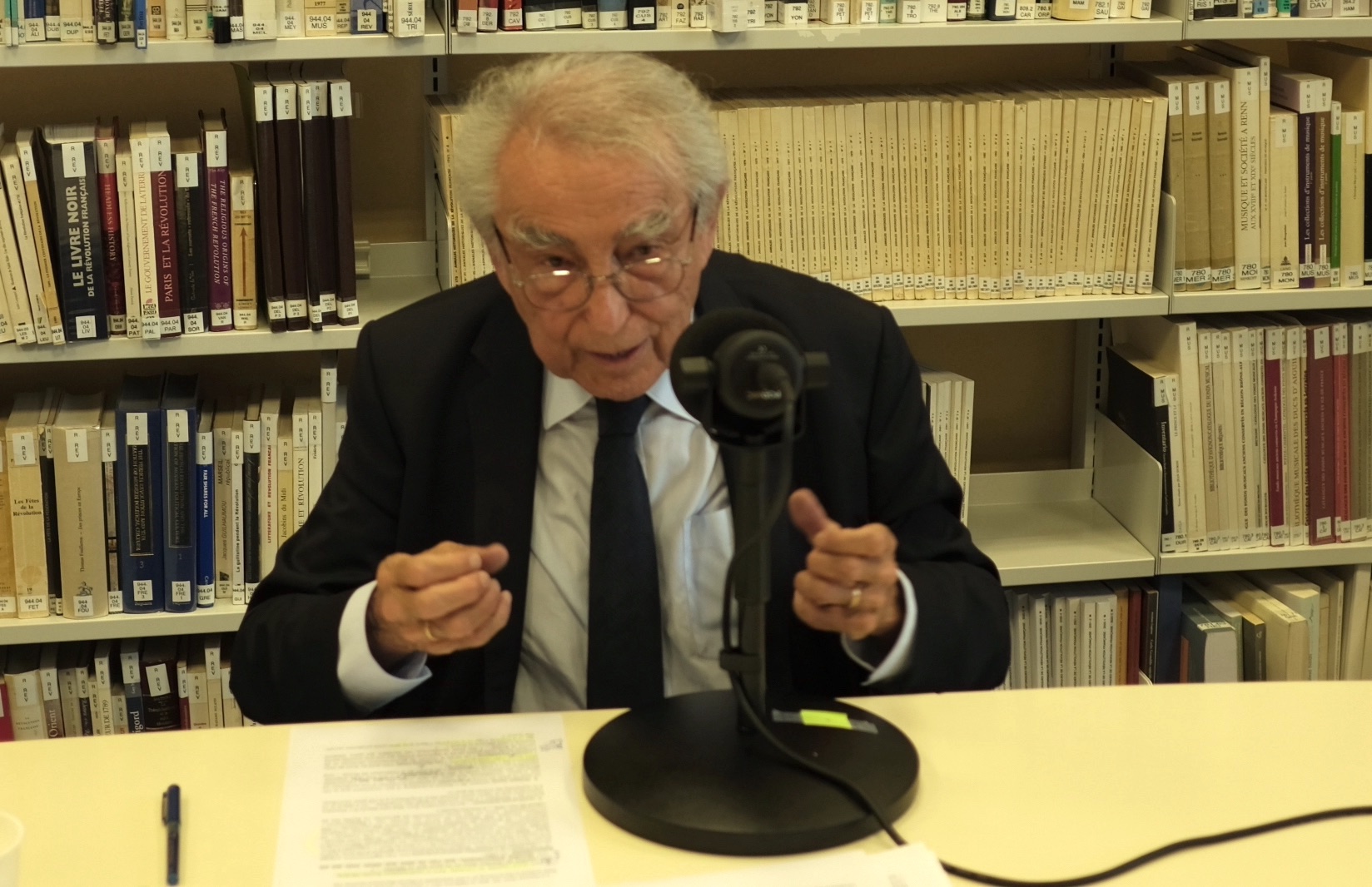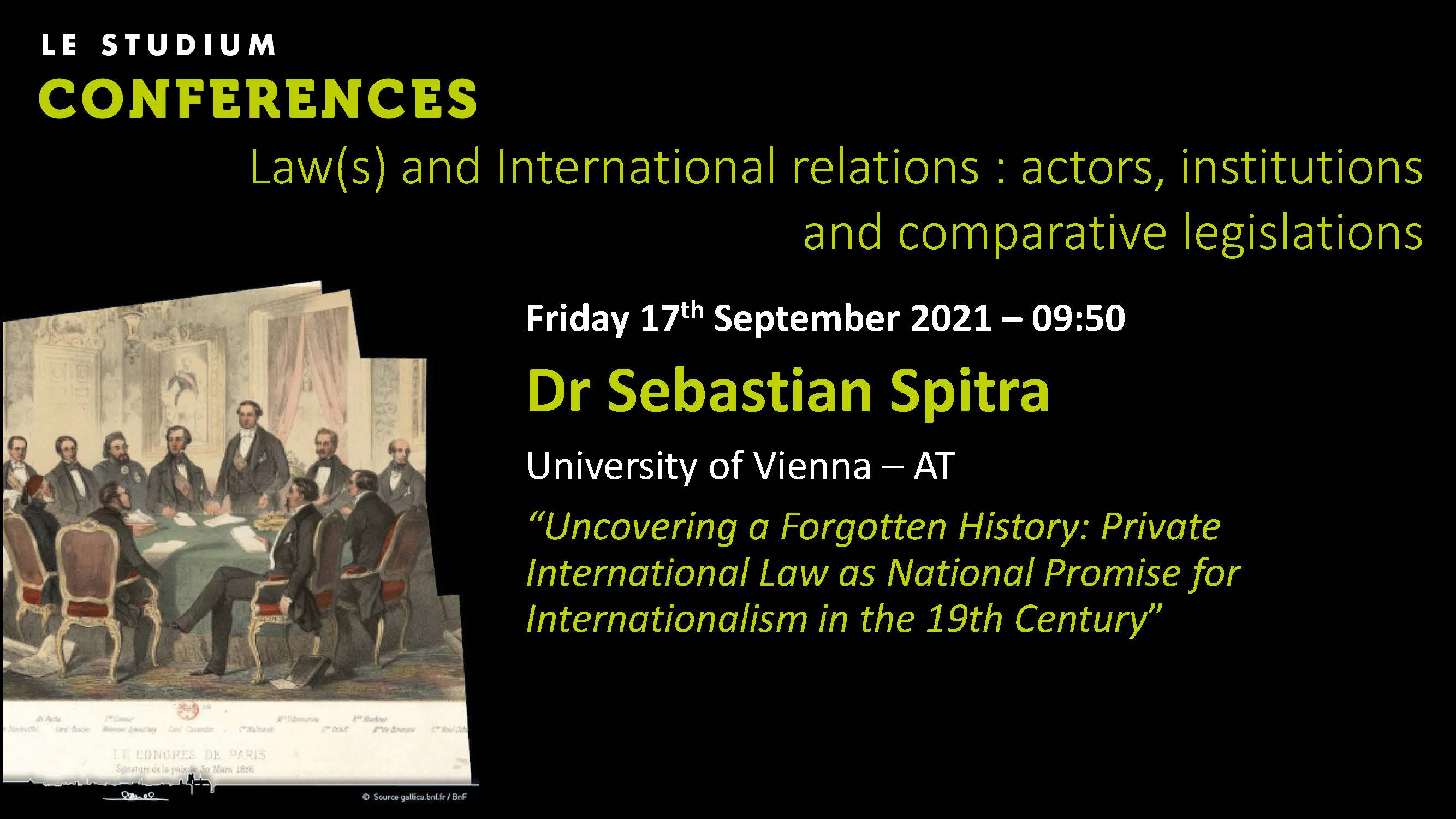Notice
Anastasia Hammerschmied - Violence, Gender, Warfare: Origins of an International Legal Regime in the 19th Century
- document 1 document 2 document 3
- niveau 1 niveau 2 niveau 3
Descriptif
"The honor and rights of the family... must be respected", states Article 46 of the Hague Convention of 1899/1907,a phrase used by earlier studies on sexual violence in war to reject a"prohibition of rape" in nineteenth-century international law. Thewritings of contemporary international law scholars display a more complexpicture when it comes to protecting women from violence.
Although the terminology "sexualviolence" and an analysis of the prohibition presents difficulties,wartime rape was not only discussed in the context of classical internationallaw of war. The prohibition of sexual violence also went hand in hand with theemerging notion of "humanity" in international law, the doctrine ofintervention, or the debate on the prohibition of colonial soldiers in Europeanwars.
The aim of this presentation is to examinethe legal situation of this regime in armed conflicts at the time of the Hague Conferencethrough an analysis of the academic and diplomatic debates around selectedevents in international politics of the preceding decades. Beginning with theacademic institutionalization of international law in the 1870s, the motives,goals, and legal consequences of international law scholars' preoccupation withthe protection of women will be examined.
Thème
Dans la même collection
-
Bruno Martin-Gay - Alexandre Walewski, émissaire à Londres du Gouvernement insurrectionnel polonais…
At the Congress of Vienna, the Polish question was a tricky one and depended mainly on the Russian position. After Napoleon’s escape from Elba, the discussions became harsher and Tsar Alexander I
-
Wouter De Rycke - Pacific Swissresponses to international instability in the early nineteenth centu…
Although socio-legal histories are on the rise, little scholarship has been devoted to the legal aspects of the early to mid-nineteenth century pacifism. Those who have taken notice of the so
-
Frederik Dhondt - Teaching International Law at King Leopold’s Foreign Office: Léon Arendt’s Droit …
The private papers of Léon Arendt (1848-1924), director of Political Affairs in the Belgian Foreign Office from 1896 to 1912, offer a unique insider’s view on an often little-studied aspect: the in
-
Mariano M. Schlez - Intelligence, diplomacy and international relations. The Parish Report on the R…
My work presents a description and explanation of the historical significance of the unpublished intelligence report "South America", written in 1822 by Woodbine Parish, clerk at the Foreign Office
-
Marion Röwekamp - A parallel legal world. Women formulating international law (1878-1914)
The process of women formulating international law started with congresses held by the transnational women's movement. Here female specialists met, exchanged legal knowledge, collected and compared
-
Yousra Chaaban - Droit Egyptien et législations comparées
On the other side of the Mediterranean, at the end of the 19th century and at the beginning of the 20th century, international relations, and particularly French ones, played an important role in
-
Hirofumi Oguri - Inseparable Pairs?: Japanese Ministry of Foreign Affairs and the Society of Intern…
The reception of European international law in the Meiji era (1868-1912) in Japan is characterised as full of ‘pragmatism’, based on the primary foreign policy adopted by the government. For
-
Philippe Rygiel - Les voyages du jeune Alphonse Rivier
Alphonse Rivier (1835-1898) is a forgotten member of the generation of internationalists who participated in the institutionalization of international law. Author of treatises, translator of Tobias
-
Raphaël Cahen - L’Académie (française) des sciences morales et politiques et le droit international…
From his foundation in 1832 until Word War I, the French Académie des sciences morales et politiques has been a place of Knowledges where the discipline of international law has been constructed.
-
Jean-Romain Ferrand-Hus - Alphonse Royer (1803-1875), penseur méconnu de la codification ottomane
On 15 March 1856, as the Congress of Paris is opening, Alphonse Royer – a man of letters, an Orientalist and a traveller who had become director of the Imperial Opera – hands Napoleon III a note on
-
Jean-Michel Turcotte - Just a Scrap of Paper? Western Military Officers, Humanitarianism and the Sh…
This presentation takes a look at my new book project focusing on the history of the Geneva Conventions. The first Convention for the Amelioration of the Condition of the Wounded in Armies in the
-
Stella Ghervas - Conquérir la paix : des Lumières à l’Union européenne
L’Europe n’a guère connu de longs moments de paix dans son histoire. Dans cette conférence grand public, basée sur son dernier livre Conquering Peace : From the Enlightenment to the European Union
Sur le même thème
-
Mer de Chine du Sud : revendications d'espaces maritimes contradictoires et lectures divergentes du…
LasserreFrédéricAdoptée à Montego Bay le 10 décembre 1982 et entrée en vigueur le 16 novembre 1994, la Convention des Nations Unies sur le Droit de la Mer (CNUDM) compte aujourd’hui 169 Parties, dont l’Union
-
Crimes de guerre
CotteBrunoBruno Cotte, haut magistrat français, qui a présidé durant plusieurs années une chambre de première instance à la Cour pénale internationale de La Haye, intervient sur la notion de « Crimes de guerre
-
Colloque exportations d’armements et droit public. Décider et contrôler l'exportation (Partie 2/4)
COLLOQUE EXPORTATIONS D’ARMEMENTS ET DROIT PUBLIC Second Panel : DÉCIDER ET CONTRÔLER L’EXPORTATION Présidé par Arnaud SÉE (Professeur de droit public – CRDP) LA DÉCISION D’EXPORTER : DU CONTRÔLE
-
Colloque exportations d’armements et droit public. Encadrer l'exportation (Partie 3/4)
COLLOQUE EXPORTATIONS D’ARMEMENTS ET DROIT PUBLIC Troisième Panel : ENCADRER L’EXPORTATION Présidé par Jean-Louis Halpérin, Professeur, Directeur du CTAD EXPORTATIONS D’ARMES ET ÉTAT DU DROIT
-
Colloque exportations d’armements et droit public. Introduction et Pourquoi exporter ? (Partie 1/4)
COLLOQUE EXPORTATIONS D’ARMEMENTS ET DROIT PUBLIC OUVERTURE DU COLLOQUE Anne-Laure CHAUMETTE-VAURS (Maître de conférences HDR en droit public – CEDIN ; Co-directrice de l’UFR DSP) et Thibaud MULIER
-
Colloque exportations d’armements et droit public Table ronde Commerce des armes et règlementation,…
COLLOQUE EXPORTATIONS D’ARMEMENTS ET DROIT PUBLIC TABLE RONDE : COMMERCE DES ARMES ET RÈGLEMENTATIONS : QUELLE(S) PRATIQUES ? QUELLE(S)CONTRAINTE(S) ? Modérateur : Thibaud MULIER (Maître de
-
Philippe Rygiel - Les voyages du jeune Alphonse Rivier
Alphonse Rivier (1835-1898) is a forgotten member of the generation of internationalists who participated in the institutionalization of international law. Author of treatises, translator of Tobias
-
Raphaël Cahen - L’Académie (française) des sciences morales et politiques et le droit international…
From his foundation in 1832 until Word War I, the French Académie des sciences morales et politiques has been a place of Knowledges where the discipline of international law has been constructed.
-
Jean-Romain Ferrand-Hus - Alphonse Royer (1803-1875), penseur méconnu de la codification ottomane
On 15 March 1856, as the Congress of Paris is opening, Alphonse Royer – a man of letters, an Orientalist and a traveller who had become director of the Imperial Opera – hands Napoleon III a note on
-
Jean-Michel Turcotte - Just a Scrap of Paper? Western Military Officers, Humanitarianism and the Sh…
This presentation takes a look at my new book project focusing on the history of the Geneva Conventions. The first Convention for the Amelioration of the Condition of the Wounded in Armies in the
-
Bruno Martin-Gay - Alexandre Walewski, émissaire à Londres du Gouvernement insurrectionnel polonais…
At the Congress of Vienna, the Polish question was a tricky one and depended mainly on the Russian position. After Napoleon’s escape from Elba, the discussions became harsher and Tsar Alexander I
-
Sebastian Spitra - Uncovering a Forgotten History: Private International Law as National Promise fo…
The historical study of private international law is an often-neglected topic within the broader turn to the history in international law. Only a few works explore the dogmatic, intellectual and

